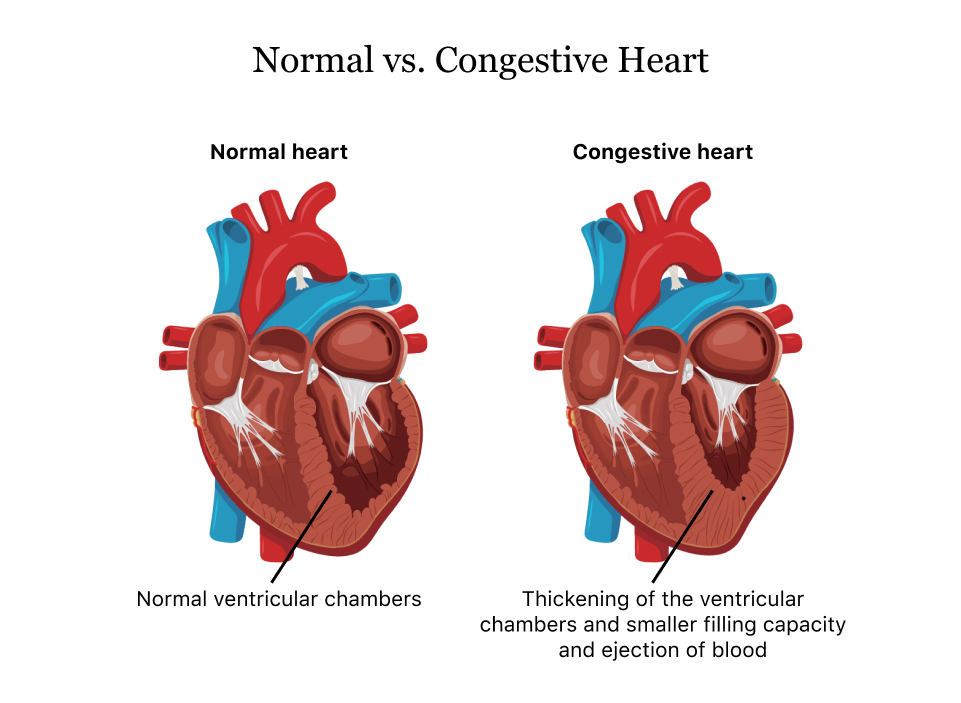Recent data revealed by the Emory Heart and Vascular Center states that – almost every age group in the US suffers from congestive heart failure (children to young adults to middle-aged and even the elderly). A maximum of CHF patients are below 60 years of age – a surprising fact, in itself! Though CHF is no longer a death sentence when you know what are the 4 stages of congestive heart failure, its symptoms, and treatment options – handling an emergency becomes easier.
This post, written with insights from medical professionals, will give you details of the types of CHF, stages, symptoms, and the variety of available treatment options. Let us explore the specifics –
Table of Contents
What is congestive heart failure (CHF)?
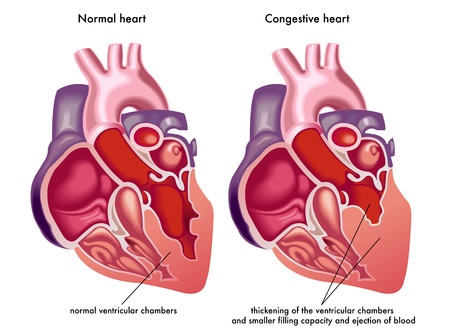
For the unversed, congestive heart failure (CHF) as it is medically referred to is a chronic heart condition, wherein, the heart becomes either weak or damaged. Hence, it cannot pump blood at the same rate, to cater to your body’s requirements. As a result, the blood gets collected in other parts of your body.
Additionally, what happens is – that the kidneys like the other organs receive less blood. So, they cannot filter out excess fluids from the body. This fluid then gets accumulated (congested) in and around – the lungs, liver, and abdomen area, thereby giving the name – congestive heart failure.
Types of congestive heart failure
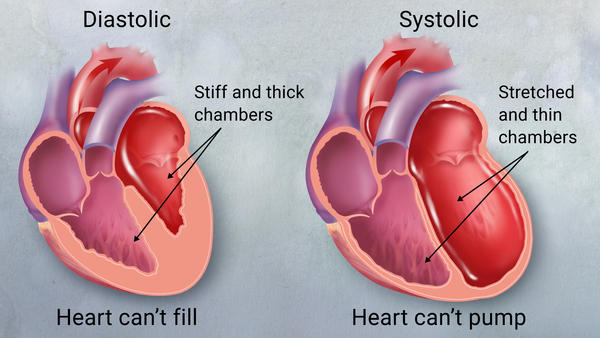
For the record, there are multiple types of CHF that a person can experience. The most common categories are – Right and left-sided CHF, Biventricular CHF, and Systolic and Diastolic CHF.
Right and Left-sided CHF
Here, either the right or the left ventricle cannot pump blood effectively. Therefore, blood backs up, causing fluid retention and resulting in a host of other symptoms – incessant coughing, fatigue, and nausea.
Biventricular CHF
In this case, both the right and left sides of the heart muscles are impacted and the patients experience a shortness of breath.
Systolic and Diastolic CHF
While systolic CHF implies the inability of the left ventricle to pump blood, diastolic CHF implies that heart muscles become stiff. In either of the cases, there is fluid buildup and it results in swelling.
Let us now find out the stages of this heart failure –
What are the 4 stages of congestive heart failure?
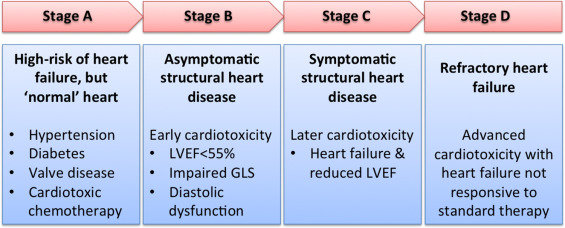
The stages are –
Stage A – At a Risk of Congestive Heart Failure

This is a scenario wherein the concerned individuals have yet not developed any symptoms, but are at a risk of developing the same. They have a family medical history, as well as certain inherent health issues that may take for the worst in the upcoming years, if not handled well.
Symptoms
Categorically, there are no specific symptoms as such. But some patients do exhibit symptoms like –
- Difficulty in breathing/shortness of breath
- Family history of – artery disease, high blood pressure, rheumatic fever, cardiomyopathy, cardiotoxic drug therapy, and hypertension
- Metabolic syndrome
Outlook
At this stage, there is no issue as such with the functioning of the heart. However, one must manage their lifestyle to deal with the apparent symptoms that are present. Lifestyle modification is the key to success!
Stage B – Pre-Heart Failure Stage

Proceeding to the second stage of your query regarding what are the 4 stages of congestive heart failure – in this case, some symptoms become categorically noticeable. In this case, there are structural issues in your heart (echocardiogram reports state an enlarged left ventricle) and one may notice the same prominently after physical exertions. Further tests will show thickening of heart walls, valve-related issues, cardiac biomarkers (B-type natriuretic peptide)
Symptoms
- Heart palpitations, shortness of breath
- Overall fatigue in the body, and inability to remain active consistently
Outlook
At this stage, lifestyle modifications are a must! The perennial smokers and drinkers must immediately quit, and shift to healthier meals such as – a diet packed with protein, nutrients, and supplements.
Apart from that, medically speaking – doctors prescribe beta blockers for them. Also, they could consider – valve replacement, coronary artery bypass, and valve repair as per reports obtained.
Stage C – Symptomatic Heart Failure/Start of advanced heart failure
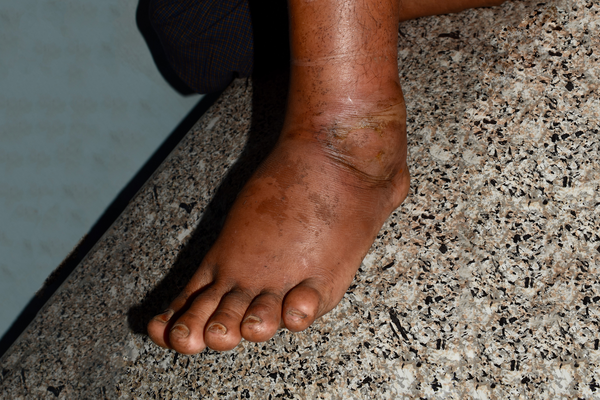
Wondering more about what are the 4 stages of congestive heart failure and how much farther can it get. Well, the third stage of this CHF is when – the structural symptoms of heart failure have become prominent. In this case, as mentioned before, people have already found that they are suffering from systolic heart failure.
This category also includes people who are currently undergoing treatment for previously-mentioned symptoms of CHF.
Symptoms
- Fatigue associated with wheezing and coughing
- Inability to exercise or physical exertion
- Shortness of breath followed by rapid heartbeat
- Swollen feet, ankles and legs
- Increased urination during nighttime
- Concentration issues and trouble focusing
- Nausea and excessive weight gain within a specific period
Outlook
In this case, doctors have already prescribed the medicines. The prescribed medications include – diuretics, mineralocorticoid receptor blockers, ACE inhibitors, ARB/ARB+ neprilysin inhibitors, aldosterone antagonists, beta-blockers, and SGLT2 inhibitors. In certain severe cases, the doctors can also opt for implantable defibrillator or biventricular pacing.
Stage D – Advanced stage of heart failure

In this case, treatments almost have no significant effect on the concerned patient. In fact, at times, specific symptoms can show up even when the person is resting. Physical activity in this case is not possible. Also, the patients are placed under the highest form of restriction, and their diet is completely monitored.
Also, those people who are in Stage D of this treatment (suffering from – heart failure with reduced ejection fraction), become unresponsive to treatments. The life expectancy of such individuals is extremely low with only 20% of people having a 5-year longevity.
Symptoms
- Excessive weight gain followed by no chance of any physical activity. Even the smallest of physical exacerbations will cause medical issues.
- Incessant dry cough followed by bloated stomach. This would also include swelling of lower body parts, ankles, and legs.
- Lightheadedness, no sense of focus, and consistent fatigue.
- Any major activity causes immense discomfort.
Outlook
As you already are aware this stage is the most advanced one, therefore, compared to the previous stages, this requires categorized treatment. Your cardiologist will recommend surgical intervention, intravenous heart pump drugs, and ventricular assistance devices.
In severe cases, it could go up to – inotropes (though it may improve chances of life, it increases the chances of arrhythmia and lowers survival rate), heart transplant, and finally palliative care.
How quickly does it progress?
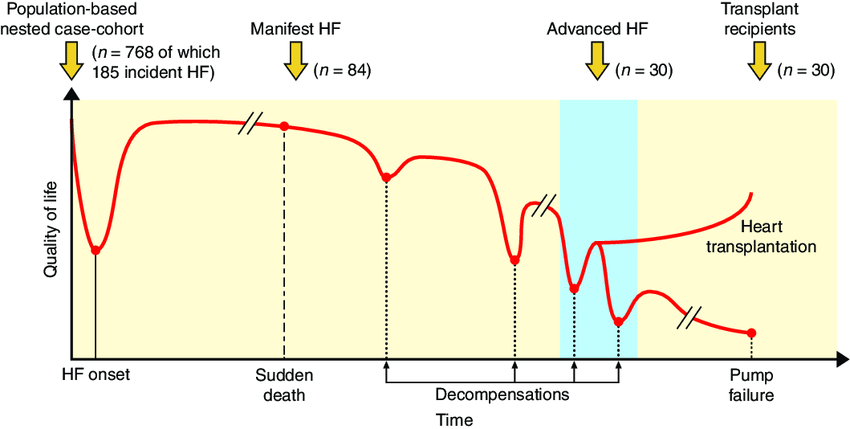
For the unversed, knowing what are the 4 stages of congestive heart failure is not enough. One should also be aware of the progression of CHF from one stage to another, given that it varies from person to person. In some patients, the progress is very controlled, and at times they do not enhance much beyond Stage A.
While in others, the progress from one stage to another enhances significantly over a limited period. It all depends on – the underlying causes of heart failure and multiple other risk factors. Having said that, the concerned cardiologist uses multiple models to assess and understand the concerned situation.
What are the risk factors associated with CHF?
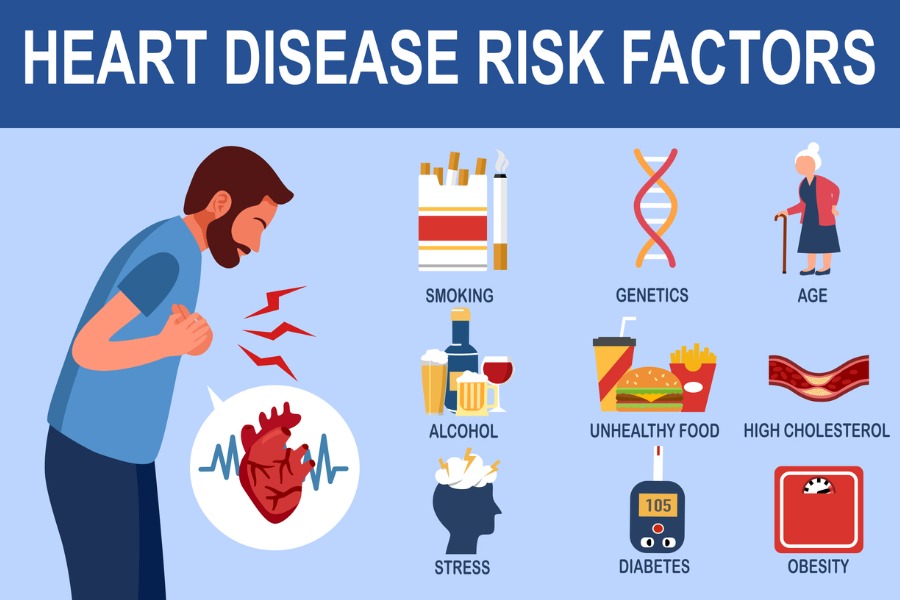
Now that you are better aware of what are the 4 stages of congestive heart failure it is only legitimate that you get to know the risk factors. They are –
- People above the age of 65 years are more prone to this.
- If you have a sedentary lifestyle coupled with unhealthy food habits (processed and junk food, or food with excessive fat and salt).
- In case you are consuming tobacco products (smoking, cocaine) and excessive drinking.
- If you have a family history of congestive heart failure or had heart attacks before.
- Lastly, people with high blood pressure and coronary artery diseases are more prone to CHF.
However, with certain lifestyle modifications, you can have a better life expectancy.
Some lifelong suggestions

Whether you get a CHF or not depends on a host of factors. Having said that, not everything is under control. However, to prevent CHF and other lifestyle diseases, here are some suggestions you must try out –
- Maintain a proper health routine. Adjust your body to specific timings (for getting up, your food timings, workout timings, work timings, and otherwise). This way your body is in sync and this prevents a host of medical issues in the first place.
- Practice mindfulness and reduce stress. This will help heal your body internally and assist in managing its regular functions.
- Eating healthy is a must. Choose your plate well, and pack it with fibers, vitamins, nutrients, and other minerals. You can indulge in junk eating once in a while, but control your portions.
- Quit smoking and limit drinking. These two aspects are essential for your general well-being. Monitor your vitals (bi-annually or even annually)
- Lastly, have a proper workout schedule. Include cardio, running, or any other strenuous physical activity to keep yourself fit.
If you follow this routine, you will save yourself not only from CHF but a host of other medical issues.
Conclusive thoughts
We sincerely hope you have read this article well and now have details of what are the 4 stages of congestive heart failure and its progression. Additionally, you have checked out the risk factors and understand how maintaining a healthy lifestyle is essential for reducing the chances of CHF. Having said that, we earnestly request you to do the needful and ensure that you are in a better place medically. If you liked this post, and want to know further medical info like this – keep watching this space!
Monalisa Mukherjee is a content writer, copywriter and editor with 4 years of experience. She has written for websites like Biography Talk, The Rich Net Worth, Contour Cafe, He And She Fitness and Fiction Pad. She is currently associated with a noted Digital Marketing Agency and specialises in writing press release, guest posts, articles on travel, entertainment, food recipes, celebs, lifestyle, tech, health, and fashion.

